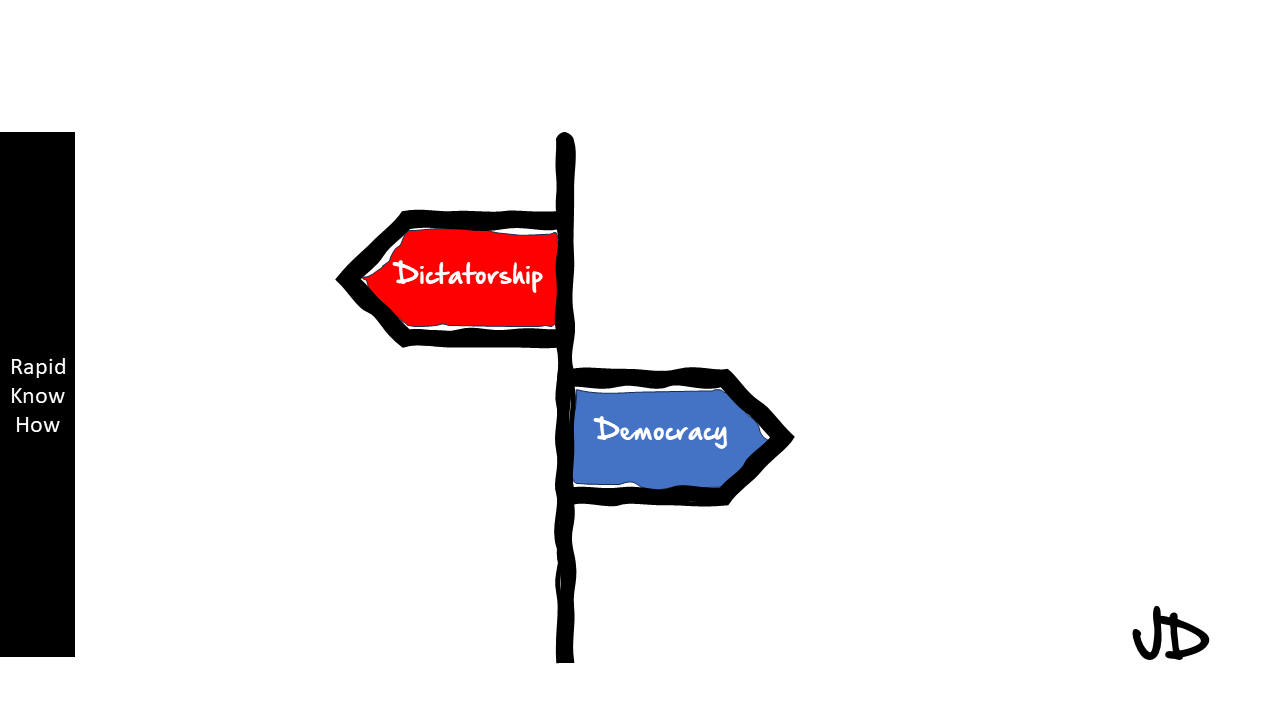In the annals of human history, societies have often found themselves at a crossroad, a juncture where they must choose between continuing on a path of oppression or embracing the promise of freedom. This narrative is an exploration of one such society’s journey from dictatorship to democracy, a transformation that required not only courage but also strategic planning and execution.
The story begins in the fictional nation of Veridia, a land rich in resources but impoverished in freedom. For decades, Veridia had been under the iron fist of a dictator, General Zorin. The citizens lived in fear, their voices silenced by the oppressive regime. However, beneath this veneer of submission, a spark of rebellion was slowly kindling.
The first step towards change was acknowledging the need for it. A group of brave Veridians, who would later be known as the ‘Freedom Coalition,’ began to mobilize. They understood that their journey would be fraught with danger and uncertainty, but they were willing to risk it all for the promise of democracy.
The Freedom Coalition knew that they could not overthrow General Zorin through force alone. They needed to win the hearts and minds of their fellow citizens and gain international support. To do this, they began by documenting and publicizing the atrocities committed by Zorin’s regime. They used every medium available – from underground newspapers to covert radio broadcasts – to spread their message.
Simultaneously, they sought to educate their fellow citizens about democracy. They held secret meetings where they discussed democratic principles such as freedom of speech, equality before the law, and the right to vote. They emphasized that these were not just abstract concepts but tangible rights that could improve their daily lives.
As word spread and support for their cause grew, the Freedom Coalition began reaching out to international allies. They appealed to democratic nations for moral support and material aid. These nations responded positively, imposing sanctions on Zorin’s regime and providing resources to aid Veridia’s transition towards democracy.
However, change did not come easily. Zorin’s regime retaliated with brutal force against any perceived threats. Many members of the Freedom Coalition were arrested or disappeared mysteriously. But each act of repression only fueled the people’s desire for change.
Eventually, under mounting internal pressure and international scrutiny, General Zorin agreed to hold free and fair elections under UN supervision. The Freedom Coalition formed a political party and nominated candidates who represented their democratic ideals.
The election day arrived amidst palpable tension. The people of Veridia turned out in droves to cast their votes – an act both revolutionary and ordinary in its defiance against dictatorship.
When the results were announced, it was clear that Veridia had chosen democracy over dictatorship. The Freedom Coalition had won a majority in parliament, marking an end to Zorin’s reign.
The road ahead was still challenging; transitioning from dictatorship to democracy is not an overnight process but rather a gradual evolution requiring patience and perseverance. The newly elected government faced numerous tasks: drafting a constitution that enshrined democratic principles; establishing independent institutions like courts and media; fostering economic development; reconciling with past injustices; and above all else, healing a nation scarred by years of oppression.
Navigating this crossroad from dictatorship to democracy was no easy feat for Veridia. It required courage from its citizens, strategic planning by its leaders, international support from allies, and above all else – an unwavering belief in the power of democracy.
This narrative serves as both a testament to human resilience in face of oppression and a guide for other societies standing at similar crossroads today. It underscores that while each journey may be unique in its challenges and solutions – at its core lies universal principles: respect for human rights; commitment to justice; belief in equality; faith in freedom; and above all else – trust in people’s power to shape their own destiny.
